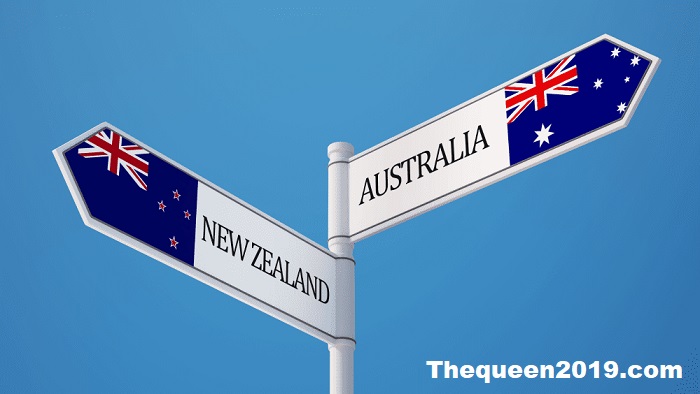How to Get Mortgages In Australia For New Zealand Citizen
How to Get Mortgages In Australia For New Zealand Citizen
Introduction to Mortgages
Mortgages are a common way for individuals to purchase property without having to pay the full purchase price upfront. They involve borrowing money from a lender, usually a bank or a financial institution, to buy a home or an investment property. Mortgages are prevalent in countries like Australia and New Zealand, where homeownership is a significant part of the culture.

Understanding Mortgages in Australia
Types of Mortgages
In Australia, there are several types of mortgages available to borrowers, including:
Variable Rate Mortgages: Interest rates fluctuate with market conditions.
Fixed Rate Mortgages: Interest rates remain constant for a set period.
Interest-Only Mortgages: Borrowers only pay the interest for a specified term.
Offset Accounts: Savings offset against the mortgage balance to reduce interest payments.
Eligibility Criteria
To qualify for a mortgage in Australia, individuals typically need to meet certain criteria, such as:
Stable income and employment history, Good credit score, Adequate deposit (usually around 20% of the property value), Proof of identity and residency
Mortgage Process
The process of obtaining a mortgage in Australia involves:
Pre-approval: Assessing your borrowing capacity. Property search: Finding a suitable property. Loan application: Submitting necessary documents to the lender. Property valuation: Evaluating the property’s worth. Loan approval: Finalizing the mortgage agreement.
Understanding Mortgages in New Zealand
Types of Mortgages
Similar to Australia, New Zealand offers various types of mortgages, including:
Floating Rate Mortgages: Interest rates fluctuate with market changes.
Fixed Rate Mortgages: Interest rates remain fixed for a specified period.
Interest-Only Mortgages: Borrowers pay only the interest for a set term.
Revolving Credit Mortgages: Line of credit secured against the property.
Eligibility Criteria
Eligibility requirements for mortgages in New Zealand typically include:
Stable income and employment. Good credit history. Deposit (usually 20% of the property value). Proof of identity and residency
Mortgage Process
The mortgage process in New Zealand involves similar steps to Australia:
Pre-approval: Assessing borrowing capacity.
Property search: Finding a suitable property.
Loan application: Submitting required documents.
Property valuation: Assessing property value.
Loan approval: Finalizing the mortgage agreement.
Key Differences Between Mortgages in Australia and New Zealand
While both countries offer similar types of mortgages and have comparable eligibility criteria, there are some key differences:
Interest rates may vary. Deposit requirements may differ. Legal and regulatory frameworks may vary.
Tips for Getting Mortgages in Australia and New Zealand
To increase your chances of getting approved for a mortgage in Australia or New Zealand, consider the following tips:
Improve Your Credit Score: Maintain a good credit history by paying bills on time and reducing debt.
Save for a Down Payment: Start saving early to accumulate a sufficient deposit.
Research Lenders: Compare mortgage rates and terms offered by different lenders.
Understand Terms and Conditions: Read the fine print of mortgage agreements to avoid surprises later on.
Conclusion
Getting a mortgage in Australia or New Zealand can be a significant step towards homeownership. By understanding the types of mortgages available, eligibility criteria, and the mortgage process, individuals can make informed decisions when purchasing property.
Unique FAQs
Is it better to choose a fixed or variable rate mortgage?
The choice between a fixed and variable rate mortgage depends on individual preferences and market conditions. Fixed-rate mortgages offer stability, while variable-rate mortgages may provide flexibility.
What is mortgage pre-approval, and why is it important?
Mortgage pre-approval is a preliminary assessment of your borrowing capacity by a lender. It helps you determine your budget when house hunting and demonstrates to sellers that you’re a serious buyer.
Can I get a mortgage with a low credit score?
While it may be challenging, it’s still possible to get a mortgage with a low credit score. You may need to explore alternative lenders or consider options like a guarantor loan.
What are the additional costs associated with getting a mortgage?
In addition to the deposit and interest payments, there are other costs such as loan establishment fees, legal fees, valuation fees, and insurance premiums.
Are there government schemes to assist first-time homebuyers?
Both Australia and New Zealand offer various government schemes and incentives to help first-time homebuyers, such as the First Home Loan Deposit Scheme in Australia and the First Home Grant in New Zealand.